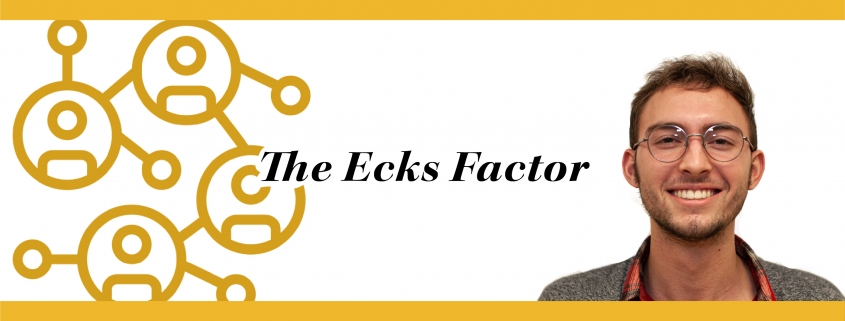The Eck’s Factor: It is time to normalize drug counterculture in society

I am a proud Drug Abuse Resistance Education graduate, Class of 2011. I remember chanting the pedagogic anthem:
“D, I won’t do drugs,” impounding the lyrics so deeply that today I could whip out the rap break on demand. “A, won’t have an attitude,” yet I indeed had one. “R, I will respect myself” — that which I’m still learning to do.
On that note, let’s talk about drugs! Psychoactive compounds, to be exact. In all honesty, I have never dabbled in psychedelic drugs — I am a D.A.R.E. graduate after all. However, I recently read “How to Change Your Mind” by Michael Pollan, and I have not been able to shut up about it. In his expose on psychedelics, Pollan documents his transcendental experiences with LSD, psilocybin and DMT to explore the neurochemistry and controlled, medicinal implementation of these substances.
Coined “The Third Wave of psychedelics,” this renaissance of experimentation focuses on the upside of psychoactive drugs, specifically with their application in mental illness treatment. Despite these obvious benefits, our culture cannot surpass this stigma that labels these substances as alien perils. In order to transition to a society that fully moves past the negative implications of hippie culture, psychedelics must be normalized as a medical advancement integral to mental illness treatment.
When we hear the phrase “dropping acid,” we immediately think of the counterculture essentials: flower print, Volkswagen buses and religiously-doled-out peace signs. In light of the Vietnam War and the civil rights movement, anti-establishment culture promoted several progressive ideologies, including environmentalism, feminism, gay liberation and even psychoactive drug experimentation.
Considered forms of radicalism at the time, environmentalism and feminism are more readily accepted today. Emerging scientific and sociological evidence, such as climate change and the gender wage gap respectively, substantiate these movements. We do not even associate these developments with the 1960s counterculture anymore — they are just progressivism.
The psychedelic movement follows a different story. In the ’60s, American psychologist Timothy Leary often considered the “Pied Piper of psychedelics,” conducted the Harvard Psilocybin Project, which assessed the long-term effects of psilocybin, the compound derived from “shrooms,” on graduate students and prisoners.
While these clinical trials pioneered the psychedelic research realm, they simultaneously derailed it. Long story short, loosely regulated protocol — along with some bad trips — resulted in widespread hysteria across the U.S. and a consequential shutdown of all other psychedelic research projects. By the end of the decade, psychoactive drugs, especially LSD, were commonly stigmatized as media of chaos being abused by hippies and degenerate youths alike.
To this day, LSD remains tethered to hippie culture of the ’60s, so much that psychedelics still relay negative connotations. “Tripping on acid” emanates recklessness and aimlessness. “Rolling” recreationally parallels rave culture and its wild implications.
Meanwhile, these predispositions subvert the revitalization of psychedelic therapy in the medical realm. Phase three clinical trials are underway for the use of MDMA — ecstasy or molly, if you will — in treating PTSD. The FDA designated “breakthrough therapy” status to psilocybin as a means to treat major depressive disorder, or MDD. A 2014 study at Johns Hopkins University supported that psilocybin may also aid in smoking cessation.
If this idea of psychiatric treatment is not radicalized anymore, such as what has occurred with women’s rights, climate activism and gay rights, psychedelics must be standardized so that their existence does not imply destructive deviance. Besides, this deviance is a socially constructed binary pitting good against bad. It stems from the spread of false, hyperbolized information and a resulting criminalization of these drugs — the government still classifies LSD and ecstasy as Schedule I substances, meaning they have no accepted medicinal potential and carry a risk of abuse.
Accredited research suggests otherwise, meaning our social makeup needs to reciprocate by supporting the potential for change. Destigmatizing mental health also means destigmatizing mental health treatment, and these revolutionary findings in the field of neuropharmacology should not be contingent upon its history. It is time to reverse these counter currents and accept their principles as necessary and catalytic to the future of medicine.
Like the iconic D.A.R.E. slogan concludes — “E, I will educate me now” — we should indeed follow suit, but from this new angle that gives proper credit to the irrefutable benefits of psychoactive drugs.
Matthew Eck is a sophomore writing about culturally relevant social issues. His column, “The Eck’s Factor,” runs every other Thursday.

